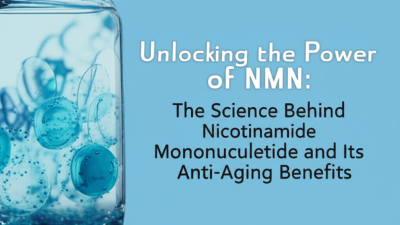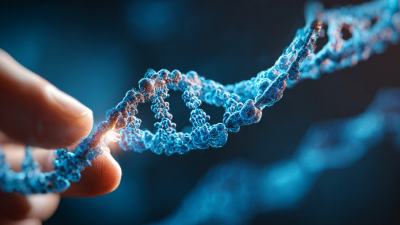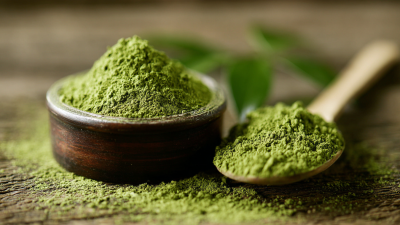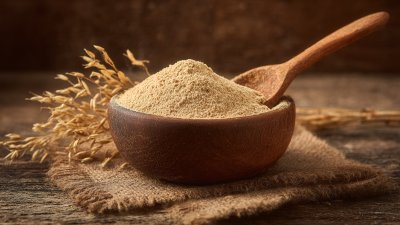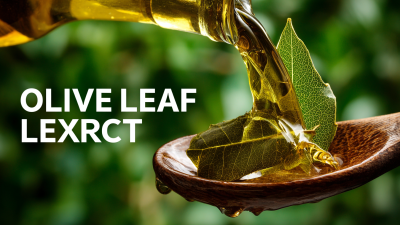Unlocking the Power of NMN: The Science Behind Nicotinamide Mononucleotide and Its Anti-Aging Benefits
In recent years, the pursuit of longevity and vitality has garnered significant attention, with NMN Nicotinamide Mononucleotide emerging as a frontrunner in the anti-aging conversation. As a naturally occurring compound, NMN plays a pivotal role in the production of NAD+ (Nicotinamide Adenine Dinucleotide), an essential coenzyme that declines with age, impacting cellular function and energy metabolism.
Research has shown that supplementing with NMN can enhance NAD+ levels, potentially leading to a myriad of health benefits, including improved energy, better sleep, and enhanced cognitive function. This article delves into the science behind NMN Nicotinamide Mononucleotide, exploring its mechanisms of action, significant research findings, and practical tips for incorporating NMN into your health regimen.
As we unlock the potential of this remarkable molecule, we invite you to discover how NMN can be a critical ally in the quest for a longer, healthier life.
The Role of Nicotinamide Mononucleotide in Cellular Energy Production
Nicotinamide Mononucleotide (NMN) (NMN) plays a crucial role in cellular energy production due to its association with Nicotinamide Adenine Dinucleotide (NAD+), an essential coenzyme found in every living cell. NMN serves as a direct precursor to NAD+, which is vital for various cellular processes, including fuel respiration and energy metabolism. The transportation of nicotinamide into cells is facilitated by specific membrane transporters, namely SLC29A1 and SLC29A2, enhancing its bioavailability and efficacy in boosting NAD+ levels.
Recent studies have highlighted the importance of NMN in supporting mitochondrial health, which is increasingly linked to aging and longevity. As NAD+ levels decline with age, the supplementation of NMN may offer a pathway to enhance energy production in cells, potentially addressing age-related metabolic decline. With the market for NAD+ products rapidly expanding, understanding the molecular mechanisms surrounding NMN and NAD+ is essential for harnessing their full potential in promoting cellular health and extending lifespan.
Key Mechanisms of NMN: Enhancing NAD+ Levels for Longevity
Nicotinamide Mononucleotide (NMN) plays a pivotal role in enhancing NAD+ levels, a crucial coenzyme for cellular energy production. As research has increasingly focused on the NAD+ salvage pathway, it has become apparent that boosting NAD+ is not only vital for metabolic health but also for promoting longevity. This pathway mitigates age-associated decline in cellular function, allowing for improved muscle efficiency and overall vitality. With aging tied to decreased NAD+ levels, supplementing with NMN offers a promising pathway to support healthy aging and potentially reverse some effects of metabolic failures linked to aging.
Moreover, the science of aging has revealed several key mechanisms that can be targeted to promote longevity. Interventions that enhance NAD+ levels through NMN supplementation are emerging as effective strategies to address these mechanisms. The insights gained from recent studies emphasize a multi-target approach, where enhancing NAD+ levels can lead to better mitochondrial function, telomere health, and cellular renewal. Such advancements indicate that as we look towards the future of anti-aging strategies, NMN may represent a cornerstone in the quest for maintaining vitality and extending healthspan.
Exploring the Anti-Aging Effects of NMN on Cellular Repair and Regeneration
Nicotinamide mononucleotide (NMN) has garnered significant attention in the scientific community for its potential impact on cellular repair and regeneration, especially in the context of aging. NMN serves as a precursor to nicotinamide adenine dinucleotide (NAD+), a vital coenzyme that plays a crucial role in various metabolic processes, including energy metabolism and DNA repair. According to a study published in the journal Nature Communications, supplementing with NMN can boost NAD+ levels by 30-50% in adult mice, enhancing their energy metabolism and promoting cellular health.
Moreover, research highlights NMN's ability to influence age-related cellular functions. A 2021 report from the Journal of Gerontology found that NMN supplementation can reverse age-associated declines in mitochondrial function, which is critical as mitochondria are the powerhouses of the cell, responsible for energy production. The study noted that NMN not only improved mitochondrial health but also contributed to enhanced DNA repair mechanisms, thereby playing a protective role against cellular senescence and degeneration. These findings suggest that NMN may become a cornerstone in developing therapeutic strategies aimed at mitigating the effects of aging at the cellular level.
Clinical Studies: Evidence Supporting NMN's Benefits for Age-Related Conditions
Recent clinical studies have shed light on the significant benefits of Nicotinamide Mononucleotide (NMN) in combating age-related conditions. Research published in the journal "Nature Communications" indicates that NMN supplementation can increase NAD+ levels, a crucial coenzyme involved in cellular metabolism and energy production. A randomized, double-blind, placebo-controlled trial demonstrated that participants who received 250 mg of NMN daily showed a remarkable improvement in insulin sensitivity and muscle endurance, both of which typically decline with age.
Further evidence from the "New England Journal of Medicine" highlights NMN's role in improving cardiovascular health. The study reported that aged mice treated with NMN experienced increased blood flow and reduced arterial stiffness, effectively mimicking the vascular health of much younger subjects. Moreover, a 2021 research paper indicated that NMN supplementation could potentially enhance mitochondrial function, which is key to combating age-related diseases. Collectively, these findings underscore NMN's promise as a revolutionary supplement for those seeking to mitigate the effects of aging and enhance overall health.
Unlocking the Power of NMN: The Science Behind Nicotinamide Mononucleotide and Its Anti-Aging Benefits
| Study Name |
Population |
Duration |
Findings |
| Effect of NMN on Metabolic Health |
Older adults (50-70 years) |
12 weeks |
Improved insulin sensitivity and lipid profiles. |
| NMN's Role in Muscle Regeneration |
Sedentary older men |
8 weeks |
Enhanced muscle strength and recovery post-exercise. |
| NMN and Cognitive Function |
Elderly with mild cognitive impairment |
6 months |
Improvement in memory and cognitive assessments. |
| Cardiovascular Effects of NMN |
Older women |
10 weeks |
Decreased arterial stiffness and improved blood pressure. |
| Long-term Safety of NMN Supplementation |
Healthy adults (30-50 years) |
1 year |
No adverse effects reported; improved vitality. |
Nutritional Sources and Supplementation Strategies for Optimal NMN Intake
Nicotinamide mononucleotide (NMN) has gained attention for its potential anti-aging benefits, and understanding how to optimize its intake is crucial. Natural food sources like
broccoli,
cabbage, and
avocados
are rich in NMN, but achieving the desired intake through diet alone can be challenging. According to a study published in the journal
Cell Metabolism,
supplementation can significantly increase
NAD+
levels in cells, which plays a vital role in energy metabolism and age-related cellular functions.
For those looking to enhance their NMN levels, supplementation strategies can be beneficial. Experts suggest starting with a dosage of approximately
250-500 mg
per day, as studies have shown this range to be effective without adverse effects. Additionally, ensuring concurrent intake of
Vitamin B3
can help in the conversion process to NAD+.
Tips: First, consider incorporating NMN-rich foods into your daily diet while complementing them with high-quality supplements. Second, be consistent with your intake, as research suggests that regular supplementation can yield more pronounced benefits on overall health and longevity. Lastly, consult with a healthcare professional before starting any new supplement regimen to tailor it to your specific health needs.

About Us
Products
Nutraceuticals
Botanical Extracts
Berberis Extract
Ginkgo Biloba Extract
Rutin
Quercetin
Grape Seed Extract
European Bilberry Extract
Broccoli Seed Extract
Fisetin
Ajuga Extract
Resveratrol
Stevia Leaf Extract
Green Tea Extract
Olive Leaf Extract
Epimedium Extract
Rhodiola Rosea Extract
Panax Ginseng Extract
Pomegranate Extract
Garlic Extract
Milk Thistle Extract
Black Pepper Extract
Fruit & Vegetable Juice Powder
Customized Service
News
Blog
Contact Us
